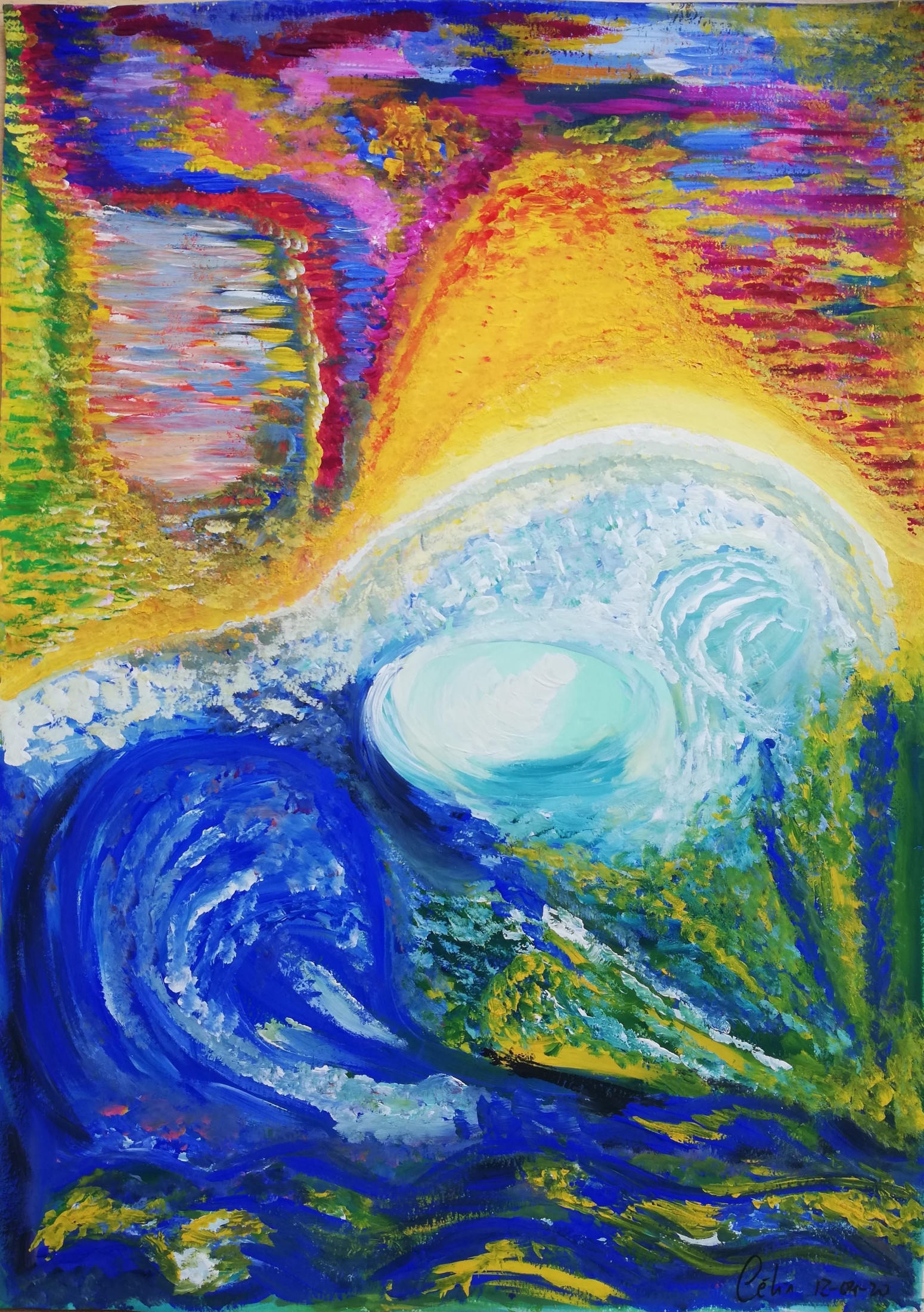Published on ThriveGlobal.com on April 17, 2020.
 By Célia Soares, MD, Psychiatry Trainee and Noshene Ranjbar, MD, University of Arizona Department of Psychiatry
By Célia Soares, MD, Psychiatry Trainee and Noshene Ranjbar, MD, University of Arizona Department of Psychiatry
When thinking of doctors and Covid-19, one readily envisions health workers running behind masks of identity and gloves of slavery to serve those vulnerable infected patients. Well, that has not been my case. As a Portuguese psychiatry trainee whose certification exams have been cancelled, and whose body struggles with autoimmune derangements, I have had to stay at home. And by staying at home I have been blessed with a place enabling me to observe this phenomenon under the lens of valuable instruments: poetry, art, music and the way of silence. These useless instruments allow us to keep playing the melodies of beauty even when the outside world reminds us in so many different ways how vulnerable, fragile and interdependent we are. What else do we have to stay grounded in a society that seems to have forgotten almost everything about the sublimation of pain?
Portugal has been adjusting to the coronavirus pandemic spread across the world since the 13th of March by establishing several political measures. Those have included the reorganization of health institutions and the functions of health care providers, strict social distancing of the public, and extended the legalization of immigrants who have now been gladly welcomed in the national health system.
We know that each system has its own poetry – a proper language that gives it texture and meaning and facilitates function and communication. But each structure has also its setbacks, sometimes preventing the expression of those striving to survive inside, who eventually need to jump to the frontlines to keep COVID19-infected humans able to breathe freely.
In the meantime, waiting for the system to adjust to the limitations and conditions of its workers, what can a doctor do to keep her sense of mission faintly alive? It’s undeniable that giving care is a key part in a doctor’s identity. And to a psychiatrist, the inability of giving mental health support in times of a pandemic can be tremendously suffocating.
So, while sitting at home I’ve been wondering what is essential to create meaning and purpose in life, while the world outside is screaming for a return to a previous (ab)normality. Is there anything to be learned while waiting for the threat to go away? And, will the threat go away?
I have had a phone, oil pastels, books, a notebook, and a broken guitar. These have proven to be enough to hold space to accommodate my sense of mission amidst the fear, anxiety, vulnerability, and hopelessness — enough to revisit and spread poetry, art, music and the way of silence.
Poetry Poetry to play with words. To accommodate unusual meanings in old words that we knew before by the heart of the visible. To deconstruct what is invisible, giving it power and strength to bloom in the garden of the fearful repetitive and falsified news breakings into our everyday eyes. Ferreira Gullar has said that “art exists because life is not enough”. This life in quarantine is absolutely not enough; the distance is not enough; the hugs that we save are not enough; the doubts are not enough; the unemployment of many is not enough; the impotence is not enough; the vulnerability of bodies and emotions is not enough; surviving is not enough. We should instead strive to embrace poetry in our life. Even when that life hurts so loudly.
Art Art to create beauty. What’s the function of this uselessness? Probably to give a color to what otherwise would be black and white. What’s the color of a child’s rainbow whose fear is much bigger than her ability to comprehend? What’s the color of the thoughts of their parents who will have no money to pay a rent? What’s the color of the conflicts of these parents and these children sharing small squares of ability to cohabit together without violence? What’s the color of people with psychiatric conditions whose voices have never been audible and prioritized? What’s the color of those hearts prevented to see their beloveds? How to blend the shadows of hope and fear, strength and frailty, words and silence, in a time in which the marks of resilience are scarce and devalued? Art gives birth to love and life.
Music Music to tune the silence. Melodies to attune the reality with the social illusions lost in their anxious way home. What songs can be played with a broken guitar? Who wants to listen to their disharmony? Leonhard Cohen has said “children show scars like medals and lovers use them as secrets to reveal”. Time heals the scars and love leaves no secrets to tell. But where stands the podium of what cannot be healed? Who can cure the elderly? Who can mend chronic diseases and chronic pain? Who can sew the anxiety and boredom into acceptance and compassion? Music tempers doubt with humility.
Silence Silence because almost everything has already been said and known. We need more hilly poetry rather than flat prose. More questions than answers. More listening than answering. But what is the silence made of? What does the silence talk about? No way to know the answers without opening the door to the mystery. Like a deaf child celebrating happily while listening to the sea through a conch. Silence opens the gates of inner poems to navigate into the storms of ugliness and emptiness.

